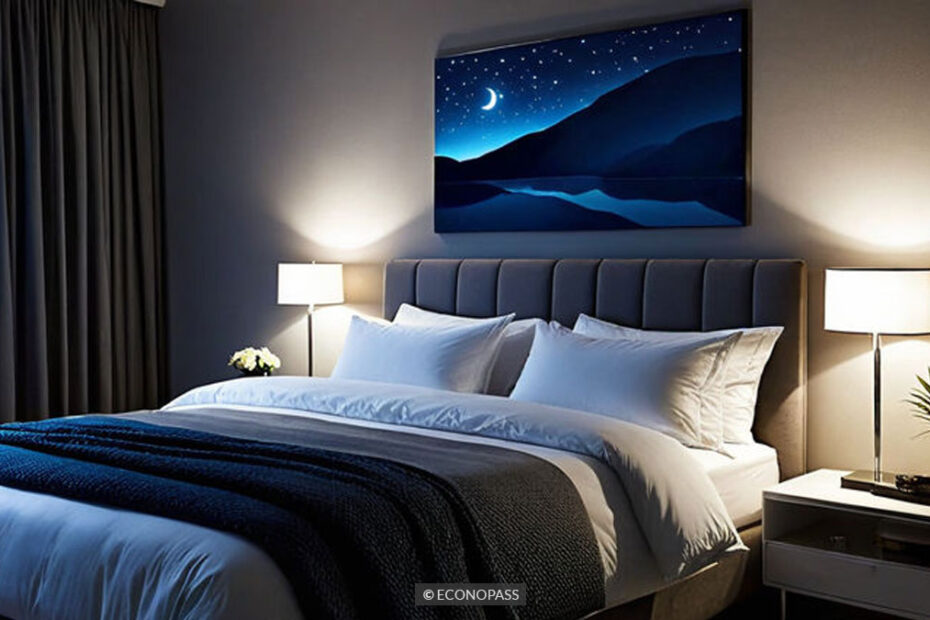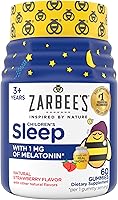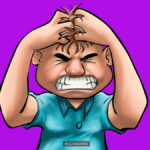Table of Contents
In the stillness of the night, as the world slumbers peacefully, you find yourself wide awake, mind racing with a million thoughts. You toss and turn, desperate for the sweet embrace of slumber, but it eludes you hour after restless hour. As the first rays of dawn peek through the curtains, you’re left exhausted, frustrated, and dreading the arrival of another sleepless night. Insomnia is a cruel companion, robbing you of the rejuvenating rest your mind and body crave.
But what if we told you that you have the power to reclaim your nights and wake up feeling truly refreshed? Imagine drifting off into a deep, restorative sleep, free from the shackles of insomnia, and waking up energized and ready to tackle the day ahead. This is the promise of holistic insomnia solutions – a harmonious blend of natural remedies and lifestyle adjustments that can help you bid farewell to restless nights once and for all.
Understanding Insomnia: More Than Just a Lack of Sleep

Insomnia is a sleep disorder characterized by persistent difficulties in falling asleep, staying asleep, or experiencing non-restorative sleep. It’s a widespread issue, with about 30% of adults reporting symptoms of insomnia, according to the American Academy of Sleep Medicine.
While occasional bouts of sleeplessness are normal, chronic insomnia can have far-reaching consequences, including:
- Fatigue and decreased productivity
- Increased risk of accidents and errors
- Weakened immune system
- Heightened stress and anxiety levels
- Impaired cognitive function and memory
Identifying and addressing the underlying causes of insomnia is crucial for achieving lasting relief.
Holistic Strategies for Overcoming Insomnia

- Establish a Sleep-Friendly Environment: Optimize your bedroom for sleep by keeping it cool, dark, and quiet. Invest in comfortable bedding, and consider using blackout curtains or an eye mask to block out light.
- Practice Good Sleep Hygiene: Develop a consistent sleep schedule, establish a relaxing bedtime routine, and avoid stimulating activities (like screen time) before bed. Regular exercise and exposure to natural light during the day can also improve sleep quality.
- Explore Herbal Remedies: Certain herbs, such as chamomile, valerian root, and lavender, have been traditionally used to promote relaxation and better sleep. Consult with a healthcare professional before incorporating them into your routine.
- Try Mindfulness and Relaxation Techniques: Practices like deep breathing exercises, progressive muscle relaxation, and meditation can calm the mind and ease anxiety, making it easier to fall asleep.
- Optimize Your Sleep Environment: Invest in a supportive mattress, comfortable pillows, and high-quality bedding. Consider using white noise machines or earplugs to block out disruptive sounds.
- Address Underlying Health Issues: Insomnia can sometimes be a symptom of an underlying condition, such as sleep apnea, restless leg syndrome, or chronic pain. Consulting with a healthcare professional can help identify and treat these issues.
- Embrace a Holistic Lifestyle: Regular exercise, a balanced diet, stress management techniques, and limiting caffeine and alcohol intake can all contribute to better sleep quality and overall well-being.
Exhausted by Endless Nights? Reclaiming Restorative Sleep is Possible

For those who have been grappling with the cruel grip of insomnia for far too long, the prospect of finally finding relief can feel like an elusive dream. Night after night, week after week, month after month, you’ve tried every trick in the book, only to be met with the same frustrating cycle of sleeplessness. You’ve likely heard every piece of well-meaning advice, from warm milk to counting sheep, and yet nothing seems to work.
If this resonates with you, know that you’re not alone, and there is still hope. Chronic insomnia is a complex condition that often requires a multi-pronged, holistic approach to overcome. It may take some patience and perseverance, but by combining various natural remedies, lifestyle adjustments, and professional support, you can gradually dismantle the barriers standing between you and the restful nights you so desperately crave.
Resist the temptation to resign yourself to a life of sleeplessness – that is not your destiny. With a commitment to exploring every avenue, an open mind, and a willingness to address the root causes of your insomnia, you can break free from this debilitating cycle. The path to restorative sleep may be winding, but with each step, you’ll be inching closer to that long-awaited reprieve.
When Trauma Disrupts Sleep: Navigating Insomnia’s Painful Path

For some, insomnia’s grip tightens in the wake of a traumatic life event – be it the loss of a loved one, a debilitating illness, or a deeply distressing experience. In these moments, the mind becomes a battlefield, replaying the pain and turmoil on an endless loop, making it nearly impossible to find the peace required for restful sleep. The once-familiar sanctuary of your bed now feels like a prison, trapping you in a cycle of rumination and unease.
If this resonates with your current struggle, know that you are not alone, and there is a way to navigate this painful path. While the trauma itself cannot be undone, holistic insomnia remedies can help create the internal conditions necessary for healing and rest. By combining mind-body practices like mindfulness and breathwork with soothing sleep rituals and a nurturing environment, you can gradually train your mind and body to release the grip of trauma’s intrusive grip, one restorative night at a time.
The journey will not be linear, and there may be setbacks along the way, but each restful night will be a hard-won victory, propelling you further along the path to inner peace and rejuvenation. With patience, self-compassion, and a commitment to your well-being, you can reclaim the sanctuary of sleep and awaken to a new dawn of healing and hope.
Remember, overcoming insomnia is a journey, and finding the right combination of strategies may take some experimentation. Be patient, consistent, and trust that with the right holistic approach, you can reclaim the restful nights you deserve.
Insomnia FAQ
How long does it typically take for insomnia remedies to work?
The timeline for seeing improvements can vary depending on the individual and the underlying causes of their insomnia. Some people may notice positive changes within a few weeks of implementing holistic strategies, while others may take several months to experience significant relief. Consistency and patience are key.
Is it safe to take over-the-counter sleep aids long-term?
Most experts advise against long-term use of over-the-counter sleep aids, as they can lead to dependency and have potential side effects. These medications should only be used as a temporary solution while implementing more sustainable, holistic remedies for insomnia.
Can insomnia be a symptom of an underlying medical condition?
Yes, insomnia can sometimes be a symptom of an underlying health issue, such as sleep apnea, restless leg syndrome, chronic pain, or certain mental health conditions like depression or anxiety. It’s important to consult with a healthcare professional to rule out or address any potential underlying causes.
How can I prevent insomnia from affecting my work or school performance?
Prioritizing sleep hygiene, stress management, and a consistent sleep schedule can help mitigate the impact of insomnia on daily functioning. If insomnia persists and begins to significantly impair your performance, consider speaking with your employer or school about accommodations or seeking professional help.
Is it okay to take short naps during the day if I’m struggling with insomnia?
Short power naps (20-30 minutes) can be beneficial for boosting energy and alertness if you’re experiencing insomnia-related fatigue. However, longer naps or napping too close to bedtime can potentially disrupt your body’s natural sleep-wake cycle and make insomnia worse.
Can cognitive behavioral therapy (CBT) help with insomnia?
Yes, cognitive behavioral therapy for insomnia (CBT-I) is an effective, evidence-based treatment that addresses the thoughts and behaviors that perpetuate sleep difficulties. CBT-I can provide valuable tools and techniques for overcoming chronic insomnia.
Can you point me at other articles about Insomnia
Sure, there you go:
– Insomnia Treatment: Cognitive Behavioral Therapy Instead of Sleeping Pills (Mayo Clinic)
– Sleep Hygiene Tips (Sleep Foundation)
– Natural Remedies for Insomnia (Cleveland Clinic)
– More articles about sleeping strategies (Econopass)
#insomnia #holisticsleep #naturalremedies #sleephygiene #mindfulness #relaxation #sleephealth #wellbeing #sleepquality #restfulnights
Was this Article Helpful?
We hope that you found this article helpful and informative. We are always striving to provide you with the best content and resources to better deal with insomnia. We would love to hear from you and get your feedback and suggestions.
Please visit our Facebook page and leave us a comment or a message. Tell us what you liked or disliked about this article, what you learned or want to learn more about, and what you want us to write about next.
Your input is very valuable to us and helps us improve our work. Thank you for reading and supporting us.


















